Find Help
More Items From Ergsy search
-
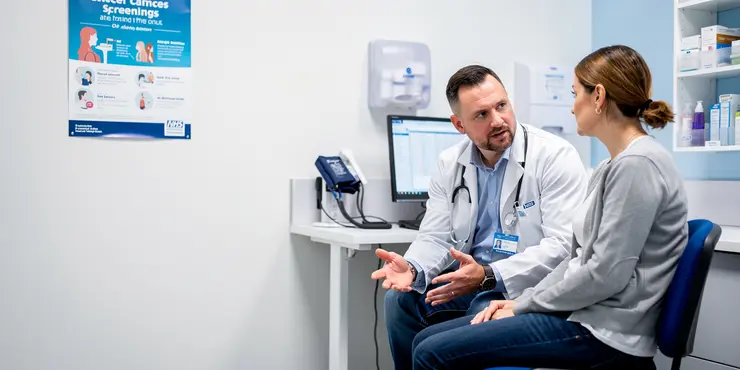
Get cancer symptoms checked by your GP | NHS
Relevance: 100%
-
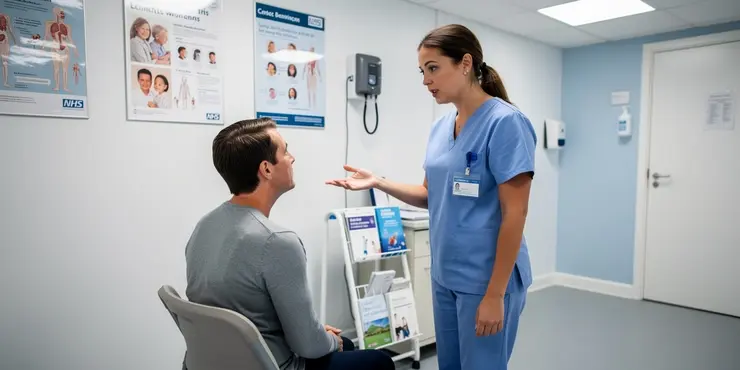
Get cancer symptoms checked by your GP | NHS - BSL version
Relevance: 93%
-
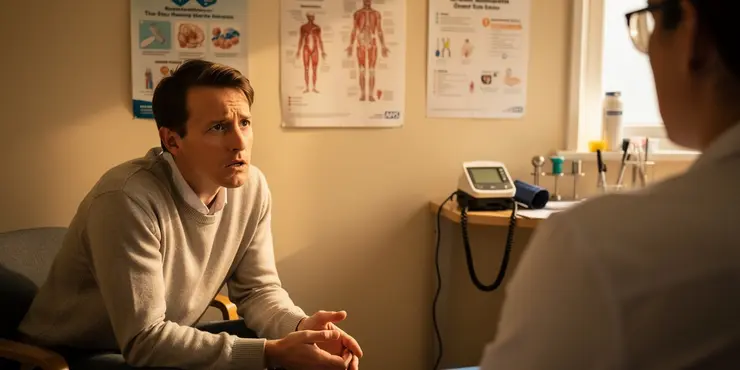
Worried about signs that could be cancer? Contact your GP practice | NHS
Relevance: 77%
-
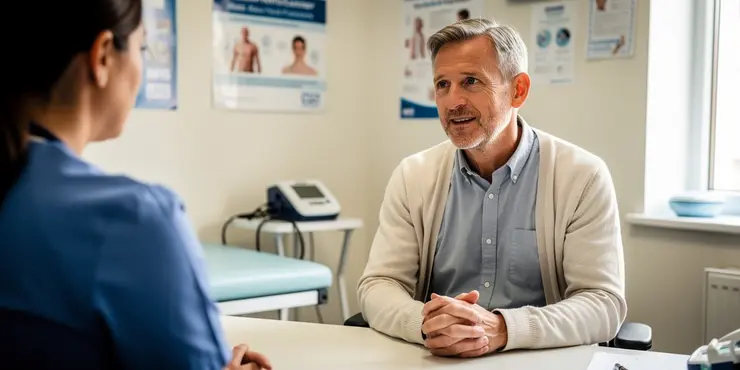
Prostate cancer symptoms - detecting them early
Relevance: 65%
-
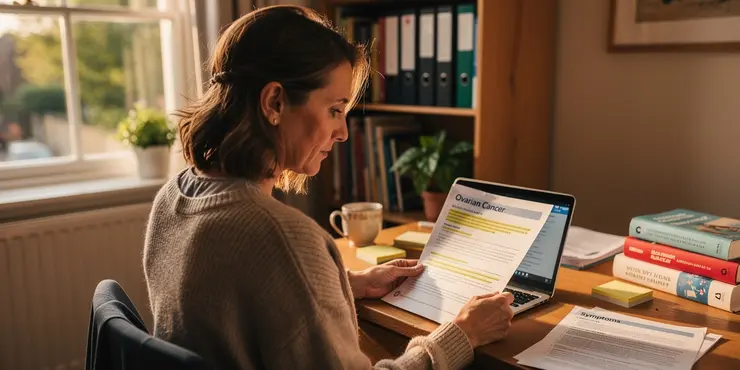
Ovarian cancer - signs and symptoms to look out for
Relevance: 64%
-
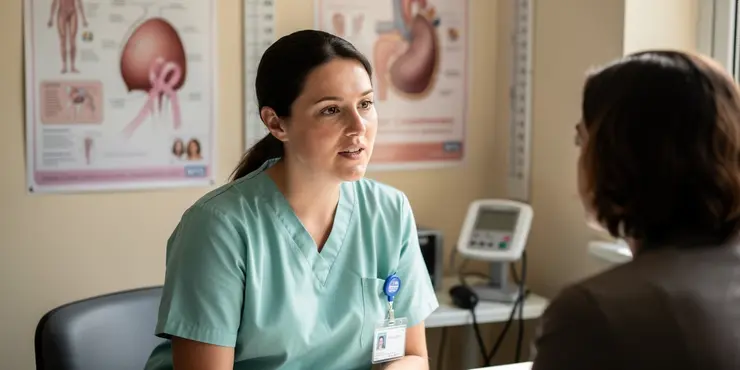
About Breast cancer - signs and symptoms | NHS
Relevance: 62%
-
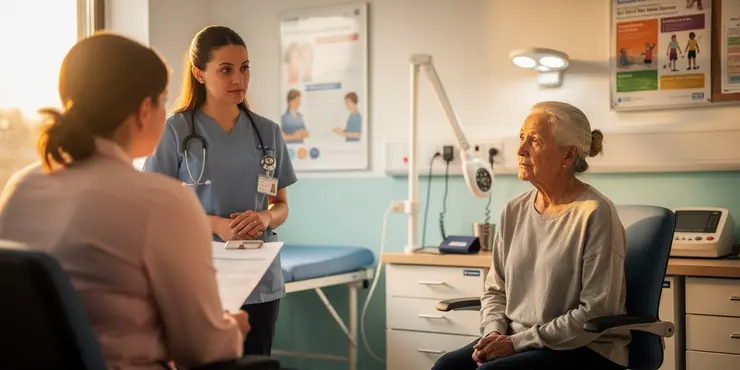
Bowel cancer - Symptoms and signs to look out for
Relevance: 62%
-
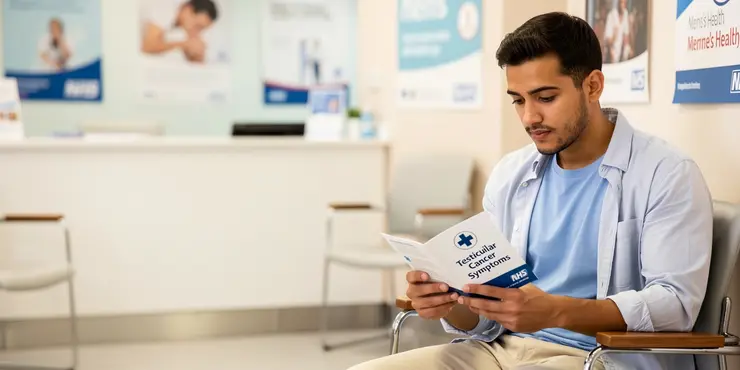
What are the symptoms of testicular cancer?
Relevance: 62%
-
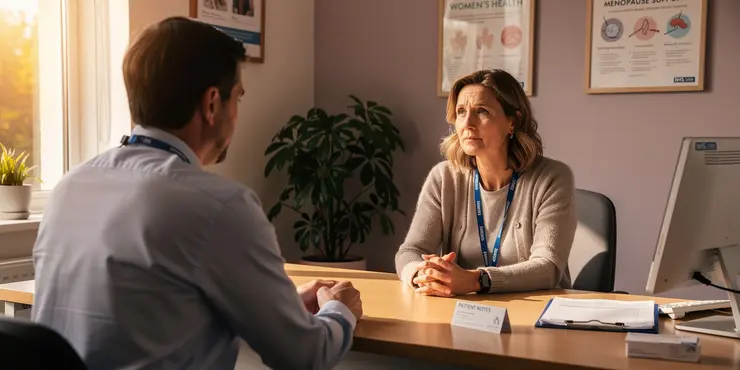
Talking menopause with your GP
Relevance: 61%
-
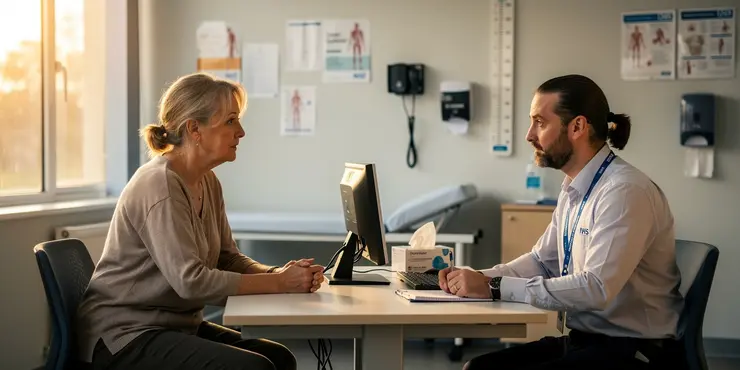
Talking menopause with your GP
Relevance: 58%
-
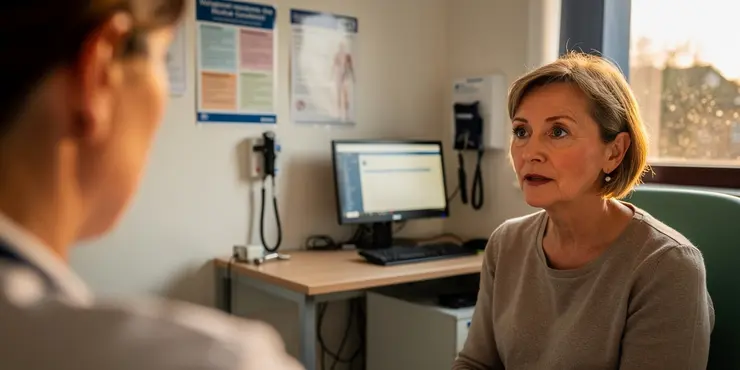
Vaginal Cancer
Relevance: 52%
-
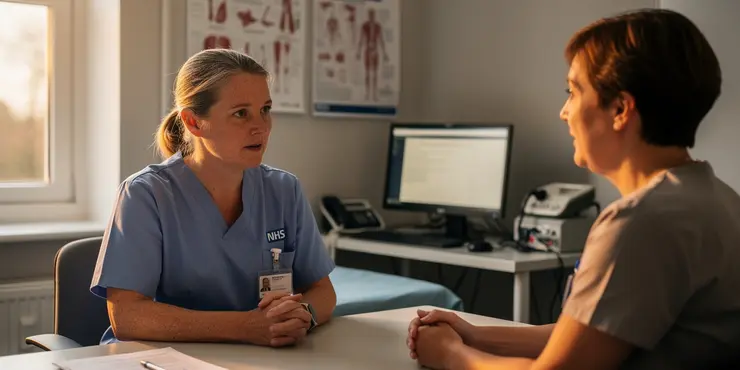
Endometrial Cancer
Relevance: 48%
-
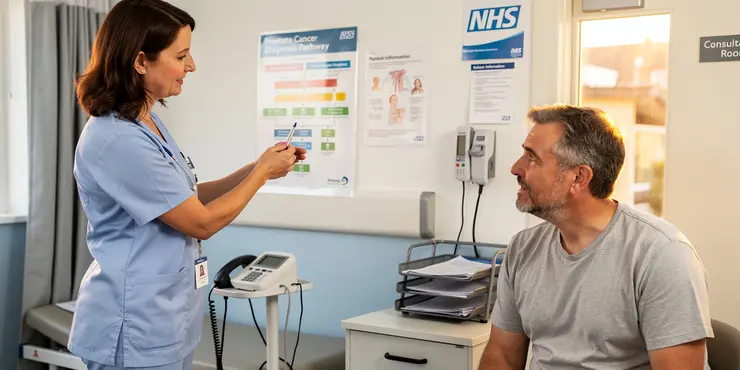
Prostate cancer diagnosis and tests
Relevance: 48%
-
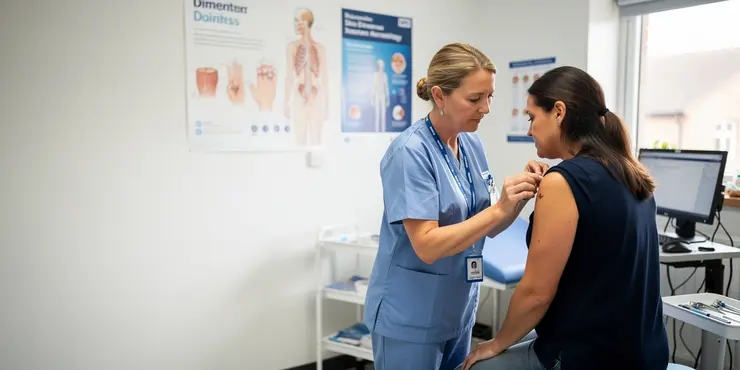
Skin Cancer - How do I check if my mole is skin cancer? | NHS
Relevance: 47%
-
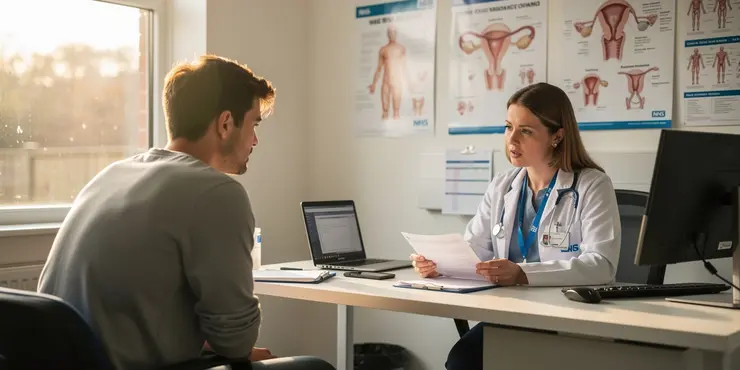
How is testicular cancer diagnosed?
Relevance: 47%
-
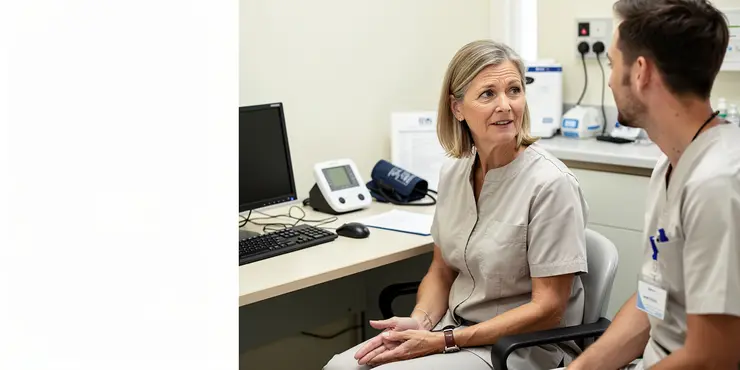
Ovarian Cancer
Relevance: 47%
-
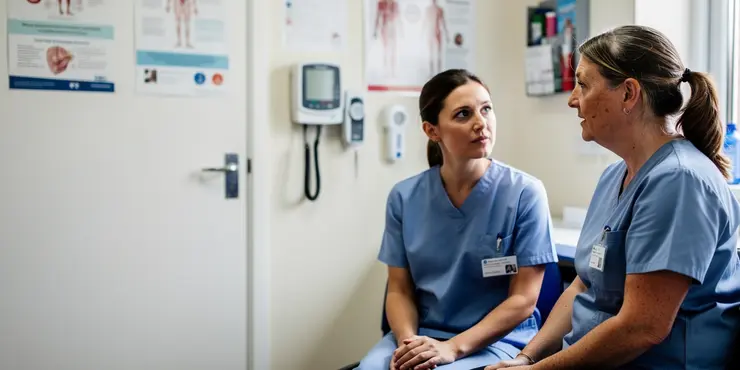
Endometrial Cancer
Relevance: 47%
-
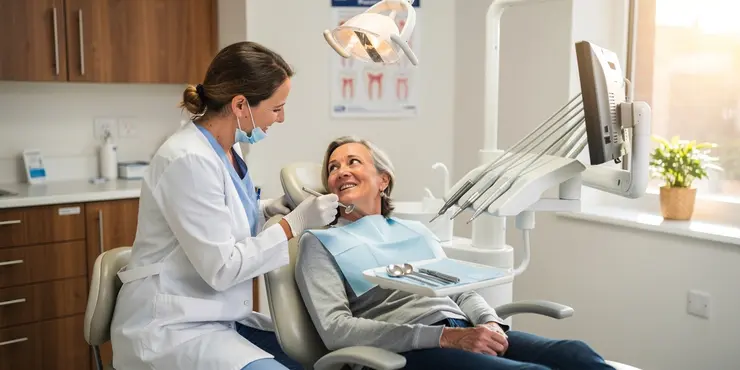
Mouth Cancer Infomercial
Relevance: 46%
-
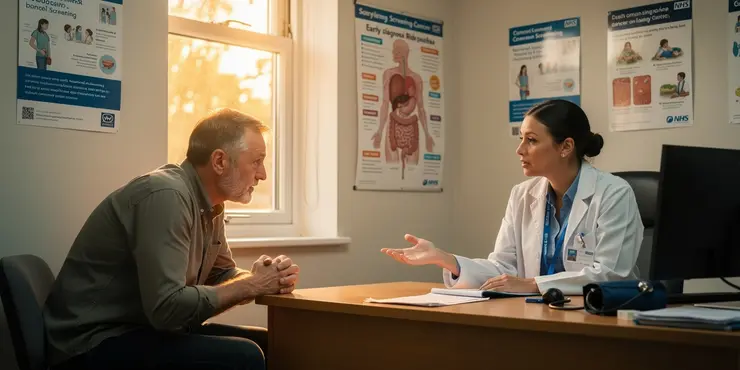
How is bowel cancer diagnosed?
Relevance: 46%
-
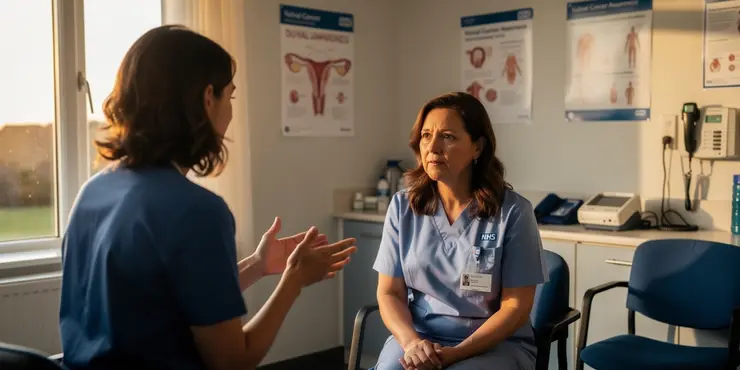
Vulval Cancer
Relevance: 46%
-
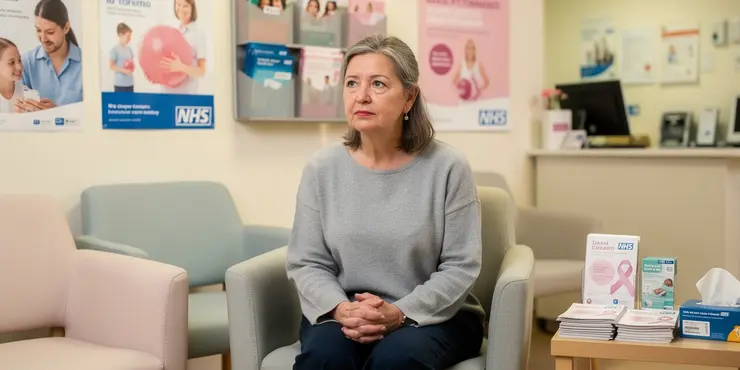
NHS breast cancer screening
Relevance: 46%
-
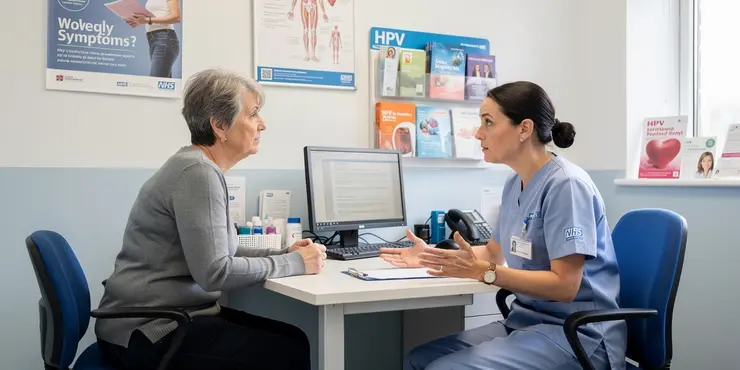
Are there symptoms of an HPV infection?
Relevance: 45%
-
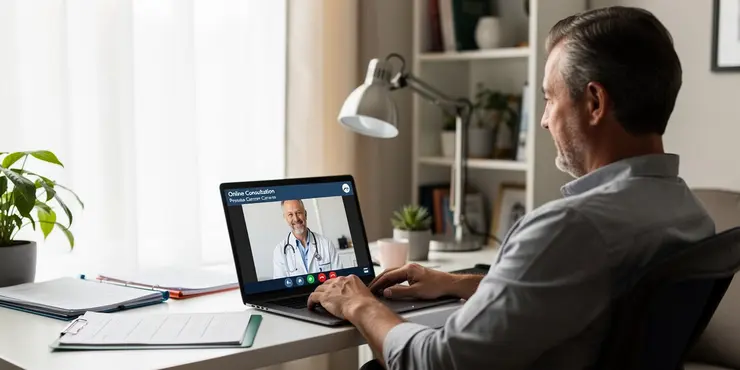
Can I consult with NHS doctors online for prostate cancer?
Relevance: 45%
-
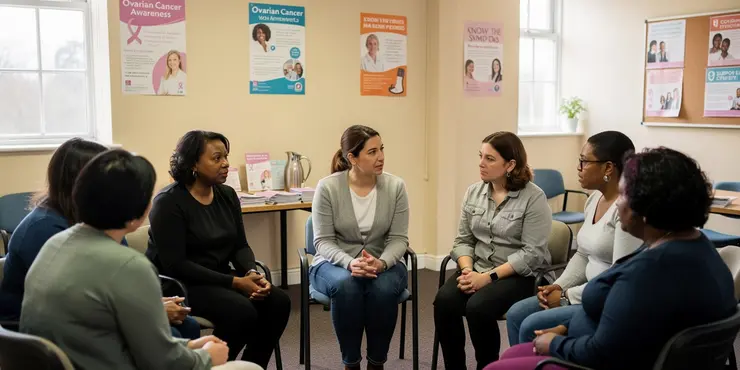
Raising awareness of ovarian cancer
Relevance: 44%
-
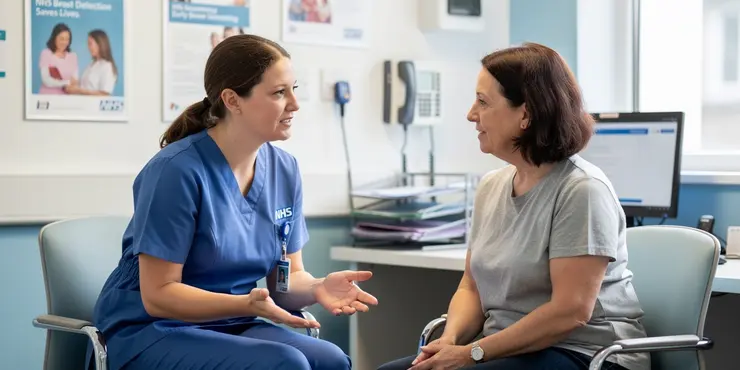
Breast cancer: testing and treatment | NHS
Relevance: 44%
-
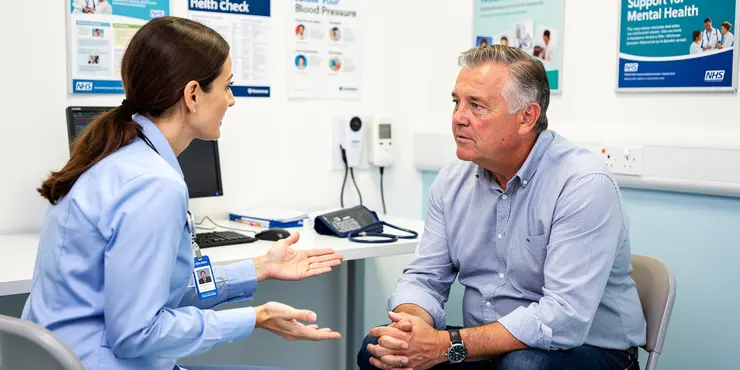
Living with prostate cancer
Relevance: 44%
-
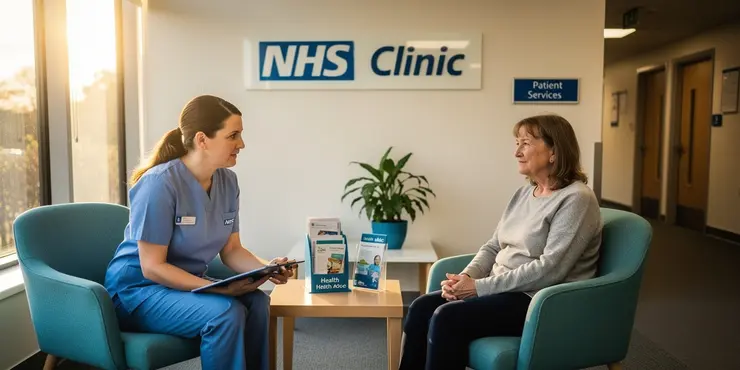
What is Cancer?
Relevance: 44%
-
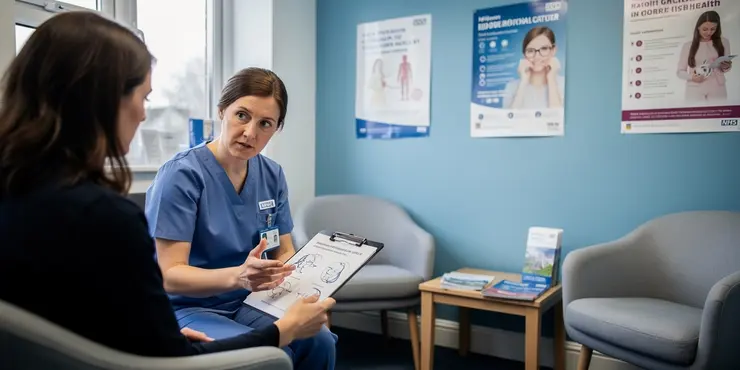
Endometrial Cancer
Relevance: 43%
-
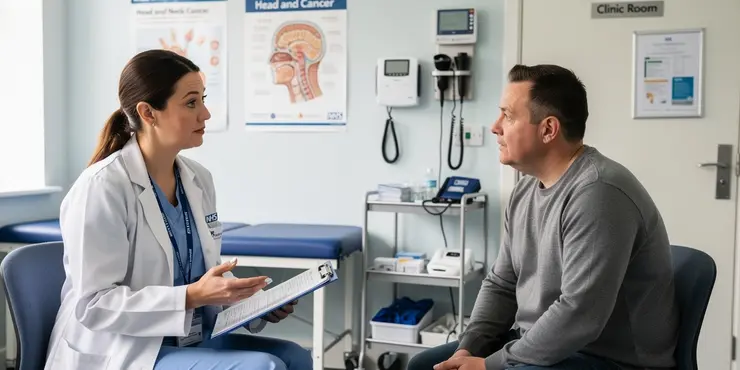
Head and Neck Cancer Diagnosis
Relevance: 43%
-
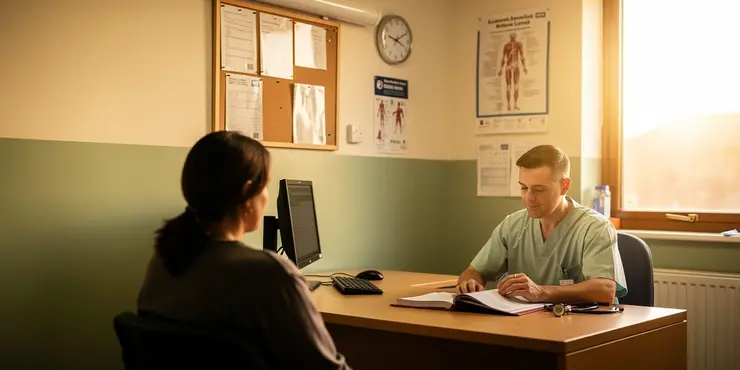
Calls for Urgent Action on GP Shortages Across Rural England
Relevance: 43%
-
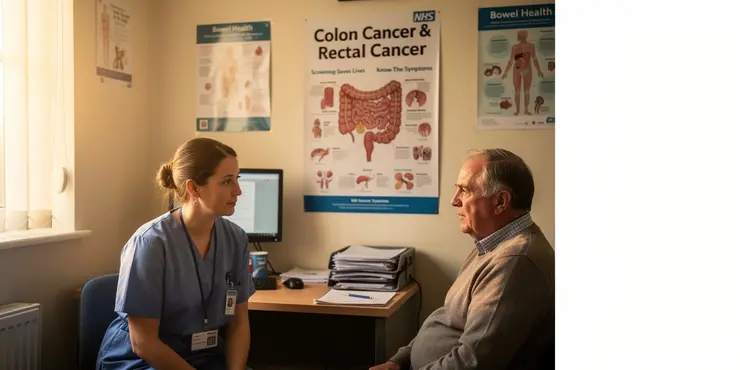
What is the difference between colon cancer and rectal cancer?
Relevance: 42%
-
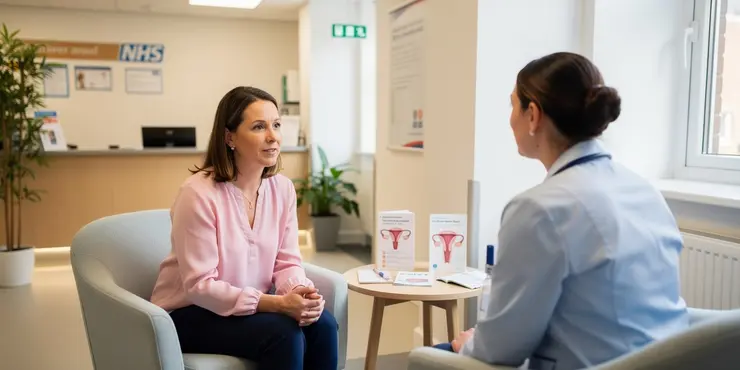
NHSGGC - Cervical Cancer Screening - English
Relevance: 42%
-
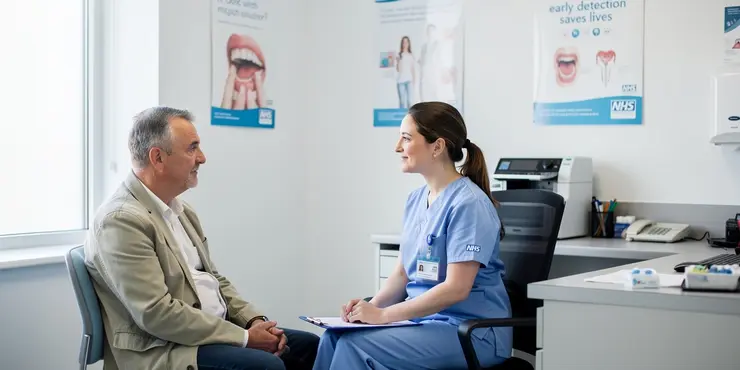
Mouth Cancer Awareness
Relevance: 42%
-
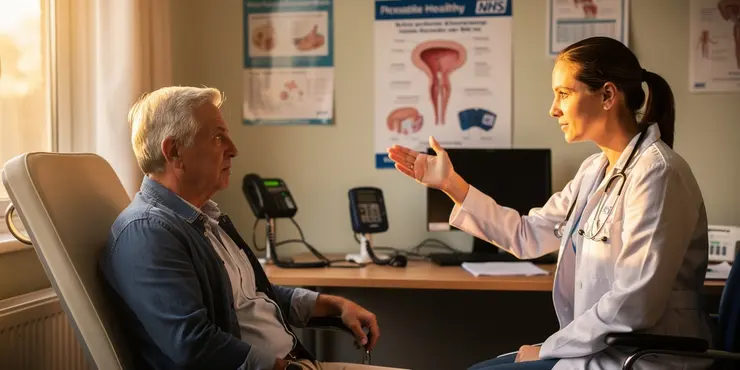
What is Prostate Cancer?
Relevance: 42%
-
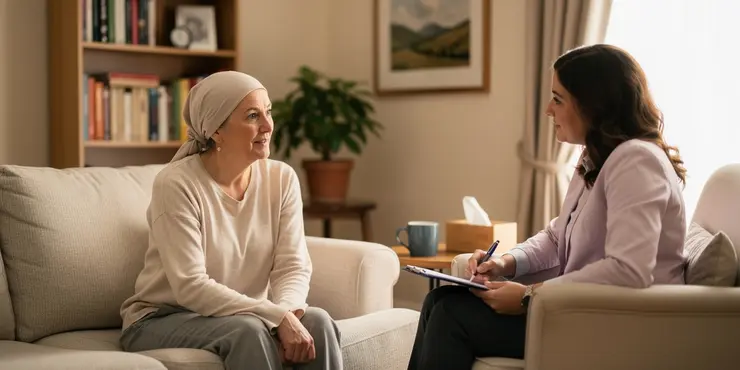
Don't carry the worry of cancer with you | NHS
Relevance: 42%
-
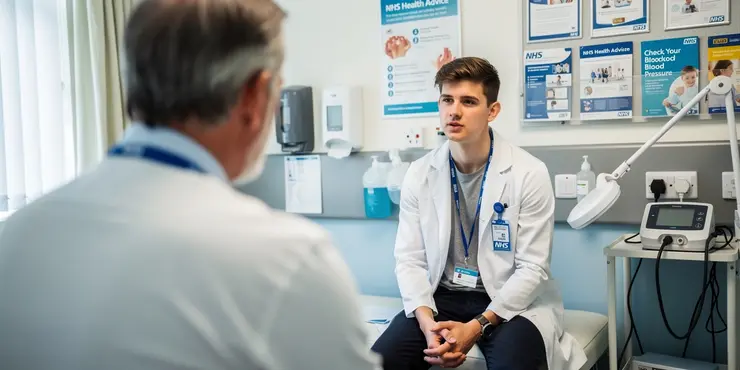
What is testicular cancer?
Relevance: 42%
-
What is testicular cancer?
Relevance: 42%
-
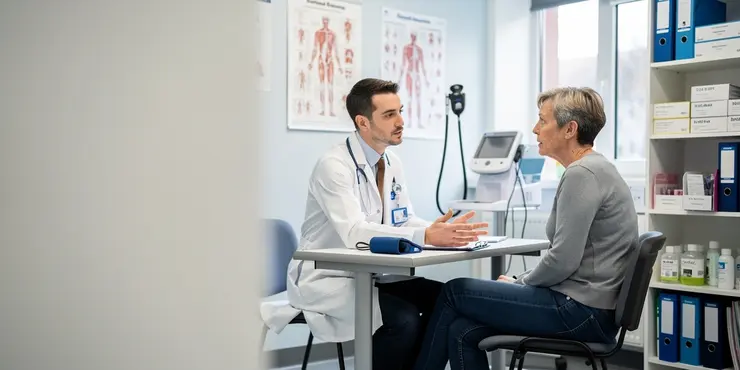
What is Pancreatic Cancer?
Relevance: 42%
-
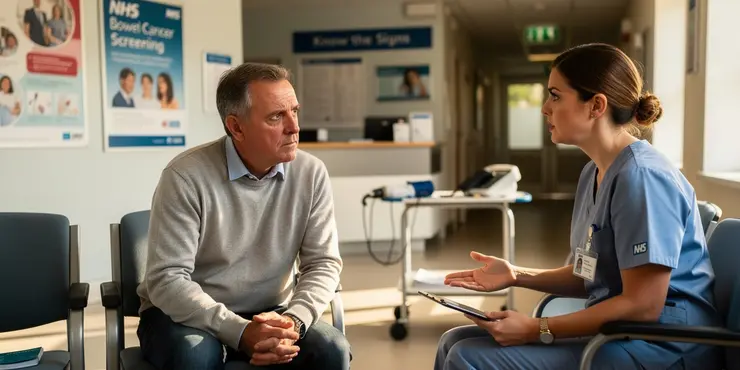
What is colorectal cancer?
Relevance: 41%
-
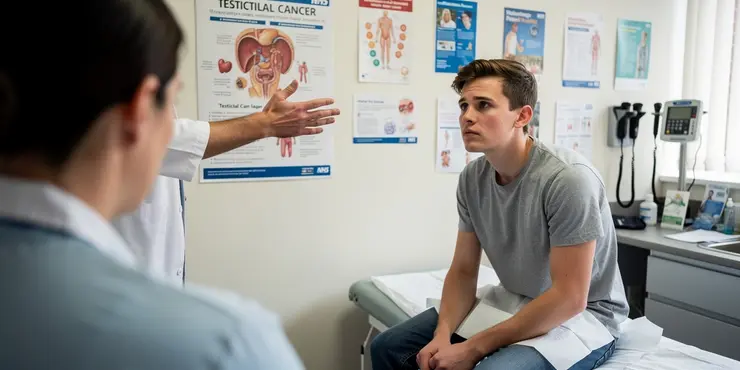
What is testicular cancer?
Relevance: 41%
The importance of getting cancer symptoms checked
Getting cancer symptoms checked promptly is of utmost importance for several reasons:
- Early Detection: Detecting cancer in its early stages greatly improves the chances of successful treatment and survival. Many types of cancer are more treatable when identified early, before they have had a chance to spread to other parts of the body.
- Improved Treatment Options: Early detection often allows for a wider range of treatment options. When cancer is caught at an early stage, less aggressive treatments such as surgery or localized radiation therapy may be sufficient, sparing the individual from more extensive treatments like chemotherapy or radical surgery.
- Better Prognosis: Promptly addressing cancer symptoms can lead to better outcomes and a higher chance of survival. Early treatment can prevent the cancer from advancing to a more advanced stage, where it may be more difficult to treat successfully.
- Reduced Complications: Treating cancer early can help reduce the risk of complications associated with the disease. As cancer progresses, it can cause various health problems and complications that may impact a person's quality of life and overall well-being.
- Peace of Mind: Getting symptoms checked promptly can provide peace of mind, even if the symptoms turn out to be non-cancerous. It's essential to address any concerns and receive a proper diagnosis from a healthcare professional rather than ignoring symptoms and allowing anxiety to persist.
- Education and Prevention: Even if symptoms do not indicate cancer, a visit to the doctor can provide an opportunity for education about cancer risk factors and prevention strategies. Healthcare professionals can offer guidance on lifestyle changes, screening tests, and other measures to reduce the risk of developing cancer in the future.
Overall, taking any concerning symptoms seriously and seeking medical attention promptly can lead to better outcomes, whether it's cancer or another health issue. Ignoring symptoms or delaying medical evaluation can allow potential problems to progress unchecked, potentially leading to more significant health issues down the road.
Get Cancer Symptoms Checked by Your GP | NHS
Why It's Important to Get Symptoms Checked Early
Early detection of cancer significantly improves the chances of successful treatment and outcomes. The NHS encourages anyone in the United Kingdom to see their GP if they notice unusual changes in their body. Common cancer symptoms can sometimes be subtle, but getting them checked early is crucial for effective management and treatment.Common Symptoms to Look Out For
Knowing the common symptoms of cancer can help you identify potential issues early. Symptoms to be mindful of include:- Unexplained weight loss
- Lumps or swelling
- Persistent pain
- Unexplained bleeding
- Difficulty swallowing
- Changes in bowel or bladder habits
- Persistent cough or hoarseness
How to Book an Appointment with Your GP
Booking an appointment with your GP is straightforward. You can call your local GP surgery, use the NHS App, or book online through the NHS website. If you have urgent concerns, mentioning your symptoms when you call can help ensure you get an appointment promptly.What to Expect During Your GP Appointment
During your appointment, your GP will ask about your symptoms and medical history. They may conduct a physical examination and request further tests such as blood tests, imaging, or referrals to specialists if necessary. Remember, seeking professional advice is a critical step in taking charge of your health.Support and Resources Available
The NHS provides a wealth of resources to support individuals concerned about cancer. From informative leaflets to specialist care units, you can access various services designed to aid both patients and their families. You can also find cancer support groups locally or online for additional emotional and practical support.Conclusion
Getting cancer symptoms checked by your GP is a vital step in ensuring your health and well-being. Early detection can save lives, and the NHS is committed to providing the necessary tools and resources to support you through this process. Don't hesitate to seek medical advice if you notice any unusual changes in your health.The importance of getting cancer symptoms checked
It is very important to get cancer symptoms checked quickly. Here is why:
- Finding Cancer Early: Finding cancer early makes it easier to treat. It gives you a better chance to get better. Many cancers are easier to treat if found before they spread.
- More Treatment Choices: If cancer is found early, you might have more choices for treatment. You could have simpler treatments, like surgery or local radiation, instead of hard treatments like chemotherapy.
- Better Chances: Getting help early can make your chances of getting better higher. Early treatment stops cancer from getting worse, making it easier to treat.
- Fewer Problems: Treating cancer early can stop it from causing other health problems, which can make life harder.
- Feel Better: Seeing a doctor can make you feel better, even if it's not cancer. It’s better to know what is wrong than to worry.
- Learning and Staying Healthy: Even if it isn't cancer, a doctor can give you tips on how to stay healthy. They can help you learn how to avoid cancer, like changes in your lifestyle or regular check-ups.
Overall, it's important to take symptoms seriously and see a doctor soon. This can help you get better whether it's cancer or something else. If you ignore symptoms, problems might get worse and harder to treat later.
Get Cancer Symptoms Checked by Your GP | NHS
Why It's Important to Get Symptoms Checked Early
When cancer is found early, doctors can help better. It is important for people in the UK to see a GP if they spot changes in how their body feels or looks. Sometimes cancer signs are hard to see, but checking them early helps doctors plan how to make you feel better.Common Symptoms to Look Out For
Knowing about common cancer signs can help find problems early. Watch out for:- Losing weight without trying
- Finding lumps or swellings
- Having pain that doesn't go away
- Bleeding for no reason
- Having trouble swallowing
- Changes in how you go to the toilet
- A cough or hoarse voice that doesn't stop
How to Book an Appointment with Your GP
Booking a time to see your GP is easy. You can:- Call your local GP's office
- Use the NHS App
- Book a visit on the NHS website
What to Expect During Your GP Appointment
At your appointment, the GP will ask about your symptoms and your health. They might check your body or ask for tests like blood tests or x-rays. They may also send you to see a specialist if needed. It is important to get advice from a doctor to help take care of your health.Support and Resources Available
The NHS offers many supports for those worried about cancer. You can find helpful materials and care units. There are also cancer support groups you can join in your area or online. They provide extra help and support.Conclusion
Checking for cancer signs with your GP helps you stay healthy. Finding cancer early can save lives. The NHS wants to help you with the right tools and support. If you see any strange changes in your health, do not wait to talk to a doctor.Frequently Asked Questions
What should I do if I notice a new or unusual symptom that might be cancer?
If you notice a new or unusual symptom that could be cancer, it's important to contact your GP as soon as possible. Early detection can make a significant difference in treatment and outcome.
How can I book an appointment with my GP to discuss cancer symptoms?
You can book an appointment with your GP by calling your local GP practice, or if available, using the online booking system through the NHS website or your practice's website.
What symptoms should prompt me to see my GP about cancer?
Symptoms like unexplained lumps, persistent cough, changes in bowel habits, unexplained weight loss, sudden changes to moles, or unusual bleeding should prompt a visit to your GP.
Can I consult my GP about cancer symptoms during the COVID-19 pandemic?
Yes, you should contact your GP if you have any concerns about cancer symptoms. GP services are available, though there may be adjustments such as telephone or video consultations.
What should I expect during a GP appointment for cancer symptoms?
During the appointment, your GP will ask about your symptoms, medical history, and may perform a physical examination. They may also refer you for further tests or to a specialist.
Is there a charge for seeing my GP about cancer symptoms?
No, seeing your GP for any health concerns, including potential cancer symptoms, is free under the NHS.
What if I can't get an appointment with my GP soon enough?
If you're unable to get a prompt appointment, explain your symptoms to the receptionist and ask if you can be seen sooner. You can also call NHS 111 for advice.
Will my GP keep my concerns about cancer confidential?
Yes, any concerns discussed with your GP will be kept confidential. GPs follow strict confidentiality guidelines.
What tests might my GP recommend if they suspect cancer?
Depending on your symptoms, your GP might recommend blood tests, imaging tests like X-rays or ultrasounds, or refer you to a specialist for further assessment.
Can my GP refer me to a specialist if they suspect cancer?
Yes, if your GP suspects cancer, they can refer you to a specialist or a cancer care team for further examination and testing.
How long will I have to wait for further tests or to see a specialist?
Waiting times can vary, but the NHS has targets to ensure that urgent referrals for suspected cancer are seen within two weeks.
What if I am nervous about seeing my GP about cancer symptoms?
It's natural to feel nervous, but remember that early diagnosis can significantly improve outcomes. Your GP is there to help, and discussing your symptoms is an essential first step.
Should I bring someone with me to my GP appointment about cancer symptoms?
Yes, you can bring a friend or family member for support if you feel it would be helpful. They can also help remember the information discussed.
Can I talk to my GP about cancer screening options?
Yes, your GP can provide information about available cancer screening programs and whether you might be eligible based on your age and risk factors.
What support is available if I am diagnosed with cancer?
The NHS provides a range of support services for cancer patients, including treatment options, counseling, and support groups. Your GP and specialist team will guide you through the available resources.
What if I see a new or strange sign that could be cancer?
If you see something different with your body, tell an adult you trust or see the doctor. They can help you figure out if it is something to worry about. It's always best to check.
You can also write down what you notice. This can help you remember when you talk to the doctor.
If you see something new or strange happening with your body, it might be cancer. It is important to talk to your doctor quickly. Finding cancer early can help make the treatment work better.
How can I make a doctor's appointment to talk about signs of cancer?
Do you need to see the doctor about cancer signs? Here is how you can do it:
1. Call the doctor’s office: Use the phone to call your doctor’s office. Tell the person who answers that you want to see the doctor.
2. Use the computer: Some doctors let you book online. Go to the doctor’s website and make the appointment there.
3. Ask for help: If you need help, ask a family member, friend, or carer to help you make the appointment.
It is important to talk to the doctor if you are worried. They can help you feel better.
You can make a doctor appointment by calling your local doctor’s office. You might also be able to book online through the NHS website or your doctor’s office website.
When should I see my doctor about cancer?
Here are some signs that mean you should talk to your doctor:
- If you have a lump or bump that is new or doesn't go away.
- If you notice any unusual bleeding.
- If you have a cough that doesn't get better.
- If you lose weight without trying.
- If you feel very tired all the time.
It is always good to tell your doctor if something in your body feels different or wrong. You can also ask a family member or friend to help you talk with your doctor.
If you notice a lump that doesn't go away, a cough that lasts a long time, changes in how often you go to the toilet, losing weight without trying, a mole that looks different, or bleeding that is strange, you should see your doctor.
Can I talk to my doctor about cancer signs during COVID-19?
Yes, it's important to talk to your doctor if you feel sick or notice new signs that might be cancer. Even during the COVID-19 pandemic, doctors are ready to help you.
You can:
- Call your doctor to ask questions.
- Use video calls to talk to your doctor.
- Go to the doctor's office if they say it's safe.
Remember, your health is important. If you need help, ask your family or someone you trust.
If you are worried about having cancer, talk to your doctor. You can still see your doctor. They might talk to you on the phone or a video call.
What will happen when I see the doctor about signs of cancer?
When you go to the doctor because you think you might have cancer, here is what will happen: 1. **The doctor will ask questions** The doctor will talk to you about how you are feeling. They will want to know all your symptoms. 2. **The doctor will check your body** The doctor might look at or feel different parts of your body to see if everything is okay. 3. **You might need tests** The doctor could send you for tests like blood tests or scans to see what is happening inside your body. 4. **Bring someone with you** It's a good idea to have a friend or family member with you. They can help you remember what the doctor says. 5. **Write down questions** Before you go, write down any questions you want to ask the doctor. 6. **Talk about what happens next** The doctor will tell you what will happen after the appointment. Remember, the doctor is there to help you.When you see the doctor, they will ask you about how you feel and your health in the past. They might also check your body to see what is wrong. Sometimes, they might send you for more tests or you might need to see another doctor who knows more about your problem.
Do I have to pay to see my doctor about signs of cancer?
No, you do not have to pay to see your doctor if you are worried about cancer symptoms.
If you are scared or worried, talk to someone you trust. They can help you understand what to do. It is important to see a doctor if you are concerned.
Tools like voice-to-text apps can help you communicate how you feel if you find it hard to talk about it.
No, you do not have to pay to see your doctor about any health worries, like signs of cancer. It is free if you use the NHS.
What can I do if I can't see my doctor quickly?
It can be hard if you can't see your doctor soon. Here are some things you can try:
- Call your doctor's office again and ask for the next available appointment.
- Try asking if there is a cancellation so you can see the doctor sooner.
- If you feel very sick, tell someone in the office. They might get you a quicker appointment.
- Use a phone app or website to see other doctors near you.
- You can go to a walk-in clinic to see a doctor quickly.
- If it's an emergency, call emergency services or go to the hospital.
It helps to write down your symptoms and questions before you go to see the doctor. This can help you remember everything you want to say.
If you can't get an appointment quickly, tell the receptionist about your problem and ask if you can see someone sooner. You can also call NHS 111 for help.
Can I talk to my doctor about cancer worries without anyone else knowing?
Yes, anything you talk about with your doctor is a secret. Your doctor has to keep it private.
What tests might my doctor suggest if they think I have cancer?
If you don't feel well, your doctor might do some tests. They could do blood tests, take pictures of your insides with X-rays or ultrasounds, or send you to another doctor who's really good at figuring out what's wrong.
Can my doctor help me see a cancer expert?
If your doctor thinks you might have cancer, they can help you see a special doctor. This doctor is called a specialist.
Here are some tips to help you:
- Ask your doctor questions if you don't understand.
- Take notes so you remember what the doctor says.
- Bring someone you trust to the appointment for support.
Yes, if your doctor thinks you might have cancer, they can send you to a special doctor who knows a lot about cancer or a team that helps people with cancer. They will check you more to find out for sure.
How long will I wait for more tests or to see a special doctor?
Sometimes you might wait different times to see a doctor. The NHS tries very hard to make sure people with urgent cancer worries see a doctor in two weeks.
What if I feel scared about talking to my doctor about cancer signs?
It's okay to feel scared or worried. Here are some things that might help:
- Take a friend or family member with you for support.
- Write down your questions before you go.
- Practice what you want to say.
- Remember, doctors are there to help you.
Talking to your doctor is important, so they can help you feel better.
Feeling worried is okay. Finding out what is wrong early can really help you get better. Your doctor is there to help you, so talking about how you feel is very important.
Can I bring someone with me to my doctor appointment about cancer signs?
Yes, you can bring someone with you. They can help and support you.
They can also listen and take notes. This can help you remember what the doctor says.
You can choose a friend or family member to come with you.
If you feel worried, it is a good idea to have someone with you.
You can bring a friend or family member with you. They can help you feel better. They can also help you remember what is talked about.
Can I ask my doctor about cancer checks?
Yes, your doctor can tell you about cancer tests you might need. They will check if you should have these tests based on your age and health risks.
What help can I get if I'm told I have cancer?
If the doctor tells you that you have cancer, there are people and tools to help you.
You can talk to a nurse or a doctor. They know a lot about cancer and can answer your questions.
Look for support groups. These are groups of people who also have cancer. You can talk to them and share your feelings.
There are also hotlines you can call. They can help you any time you feel worried or scared.
Some places have counselors. A counselor can talk with you and help you feel better.
Remember, you are not alone. There are many people and tools to help you.
The NHS helps people with cancer in many ways. They offer different treatments and have people you can talk to. They also have groups where you can meet others with cancer. Your doctor and the specialist team will show you what help you can get.
Useful Links
This website offers general information and is not a substitute for professional advice.
Always seek guidance from qualified professionals.
If you have any medical concerns or need urgent help, contact a healthcare professional or emergency services immediately.
Some of this content was generated with AI assistance. We’ve done our best to keep it accurate, helpful, and human-friendly.
- Ergsy carfully checks the information in the videos we provide here.
- Videos shown by Youtube after a video has completed, have NOT been reviewed by ERGSY.
- To view, click the arrow in centre of video.
- Most of the videos you find here will have subtitles and/or closed captions available.
- You may need to turn these on, and choose your preferred language.
- Go to the video you'd like to watch.
- If closed captions (CC) are available, settings will be visible on the bottom right of the video player.
- To turn on Captions, click settings .
- To turn off Captions, click settings again.
More Items From Ergsy search
-

Get cancer symptoms checked by your GP | NHS
Relevance: 100%
-

Get cancer symptoms checked by your GP | NHS - BSL version
Relevance: 93%
-

Worried about signs that could be cancer? Contact your GP practice | NHS
Relevance: 77%
-

Prostate cancer symptoms - detecting them early
Relevance: 65%
-

Ovarian cancer - signs and symptoms to look out for
Relevance: 64%
-

About Breast cancer - signs and symptoms | NHS
Relevance: 62%
-

Bowel cancer - Symptoms and signs to look out for
Relevance: 62%
-

What are the symptoms of testicular cancer?
Relevance: 62%
-

Talking menopause with your GP
Relevance: 61%
-

Talking menopause with your GP
Relevance: 58%
-

Vaginal Cancer
Relevance: 52%
-

Endometrial Cancer
Relevance: 48%
-

Prostate cancer diagnosis and tests
Relevance: 48%
-

Skin Cancer - How do I check if my mole is skin cancer? | NHS
Relevance: 47%
-

How is testicular cancer diagnosed?
Relevance: 47%
-

Ovarian Cancer
Relevance: 47%
-

Endometrial Cancer
Relevance: 47%
-

Mouth Cancer Infomercial
Relevance: 46%
-

How is bowel cancer diagnosed?
Relevance: 46%
-

Vulval Cancer
Relevance: 46%
-

NHS breast cancer screening
Relevance: 46%
-

Are there symptoms of an HPV infection?
Relevance: 45%
-

Can I consult with NHS doctors online for prostate cancer?
Relevance: 45%
-

Raising awareness of ovarian cancer
Relevance: 44%
-

Breast cancer: testing and treatment | NHS
Relevance: 44%
-

Living with prostate cancer
Relevance: 44%
-

What is Cancer?
Relevance: 44%
-

Endometrial Cancer
Relevance: 43%
-

Head and Neck Cancer Diagnosis
Relevance: 43%
-

Calls for Urgent Action on GP Shortages Across Rural England
Relevance: 43%
-

What is the difference between colon cancer and rectal cancer?
Relevance: 42%
-

NHSGGC - Cervical Cancer Screening - English
Relevance: 42%
-

Mouth Cancer Awareness
Relevance: 42%
-

What is Prostate Cancer?
Relevance: 42%
-

Don't carry the worry of cancer with you | NHS
Relevance: 42%
-

What is testicular cancer?
Relevance: 42%
-
What is testicular cancer?
Relevance: 42%
-

What is Pancreatic Cancer?
Relevance: 42%
-

What is colorectal cancer?
Relevance: 41%
-

What is testicular cancer?
Relevance: 41%


